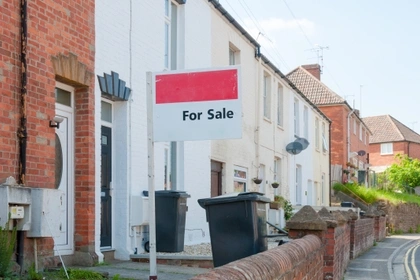What's the difference between a secured and unsecured home improvement loan?
There are two types of home improvement loan you may want to consider: secured and unsecured. Both can provide the funds you need to renovate or decorate your property.
The main difference between them is that a secured home improvement loan uses your property as collateral for the loan. For this reason, you must be a homeowner to be eligible, and your home may be at risk if you fall behind on payments.
Meanwhile, because no collateral is required for an unsecured loan, you can get one even if you’re renting your property. However, if you are a tenant, you may want to consider whether it’s worth borrowing money to improve a property you don’t own.
Some other key differences between secured and unsecured home improvement loans are:
- The amount you can borrow – Because secured loans are tied to your property, you can usually borrow more than you could with a secured loan. Unsecured loans (or personal loans) typically range from £1,000 to £15,000. Secured loans usually start from £10,000 and can go up to £500,000.
- The interest rate – Secured loans tend to have lower interest rates than unsecured loans, usually because you’re borrowing more over a longer period.
- The role your credit history plays – With secured loans, your credit history may play a lesser role in the application process as the lender has your home as security to fall back on. With unsecured loans, the lender doesn’t have any security so is more likely to give more weight to your credit history when deciding whether to approve your application.
- How soon you’ll get the money – Because no collateral is involved, the process to get an unsecured loan is much quicker than getting a secured loan. Where a secured loan could take a few weeks to organise, an unsecured loan typically takes a few days.
Home improvement loan eligibility criteria
Eligibility criteria for both secured and unsecured loans vary from lender to lender. However, there are some things all lenders consider, which include:
- Affordability - Lenders look at your income and outgoings to identify whether you can afford the loan payments.
- Credit history – This gives lenders an indication of how creditworthy you are based on your past and current financial behaviour.
- Debt-to-income ratio – How much you spend on existing debts each month compared to your income helps lenders assess how well you manage your commitments
These criteria will be considered differently depending on the type of loan and the lender you’ve chosen. For example, your credit history may play a larger role in your application for an unsecured loan than a secured loan, as you provide collateral with the latter.
Acceptance for a home improvement loan will depend on how well you fit the lender's criteria. This can vary from one provider to the next.
How to apply for a home improvement loan
To get a home improvement loan, you’ll usually apply online, although it may be possible to apply by phone or in person. Below are the stages you’ll typically go through:
-
Check your credit report
Checking your credit report before applying for any loan is important as any inaccuracies can negatively affect your credit score. In turn, this can influence the types of loan you’re eligible for and the deals you’re offered. Be sure to read over your credit report and fix any errors to make sure it’s accurate. -
Check eligibility
Use providers’ eligibility checkers to see how likely you are to be accepted. This may help you decide on which type of loan to apply for if you haven’t already. During this process, lenders will conduct soft searches on your credit report to find out more about you. Unlike hard searches completed during an application, these checks are only visible to you and won’t affect your credit score. -
Compare your options
Once you know which loans you’re eligible for, it’s time to choose one. Compare your options and decide which loan suits your needs and circumstances best. Consider how much you need to borrow, the interest rate and the loan term. Make sure you can afford the proposed repayments, both now and in the future.
If you have a choice of both secured and unsecured loans, remember that a secured loan uses your home as collateral. If you can’t repay the loan, you could risk losing your property - as well as damaging your credit history. -
Complete application
Once you’re confident with the loan you want to apply for, complete the provider’s application form. Depending on the type of loan, you may be required to speak with an adviser over the phone. They will collect any additional information needed, confirm the outcome of your application, and explain the next steps.
How long does it take to get a home improvement loan?
How long it takes to get a home improvement loan varies depending on the type of loan you apply for (secured or unsecured) and the lender.
Unsecured loans can be approved as quickly as the same day, and usually within a week. Secured loans, on the other hand, can take longer, as they require further checks, such as establishing the value of your home and your equity.
Whatever you choose, be sure that it’s the right option for you and that you can make your payments on time both now and in the future.
Should I take out a loan for home improvements?
Only you can decide if you should take out a loan for home improvements. It’s a big commitment, so it’s important that you’re sure it’s the best option for you. Ask yourself these four questions:
- Are the improvements essential?
- Are they affordable?
- Will they add value to my home?
- Do the benefits of taking out this loan outweigh the risks?
If you want to borrow money to make home improvements, you could also consider alternative types of financing. Perhaps remortgaging is a more suitable option for you if you’re happy to borrow against your house. A credit card may also provide enough money to pay for smaller improvements.
Loans for all purposes from £1,000 to £500,000
- Get a decision online
- Know your rate before you apply
- Comparing won't affect your credit score
Intelligent Lending Ltd is a credit broker, working with a panel of lenders. Homeowner loans are secured against your home.

Disclaimer: We make every effort to ensure content is correct when published. Information on this website doesn't constitute financial advice, and we aren't responsible for the content of any external sites.






